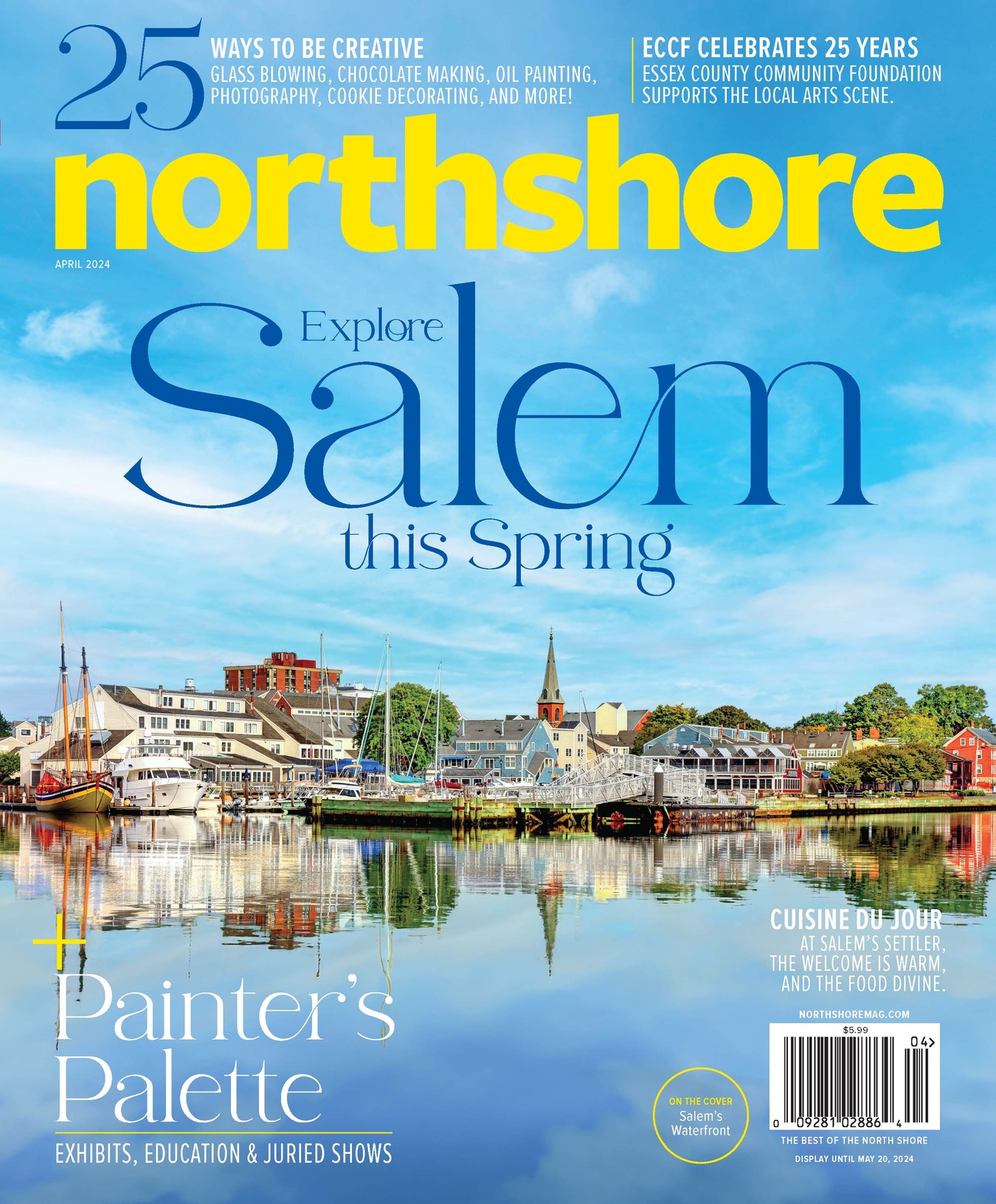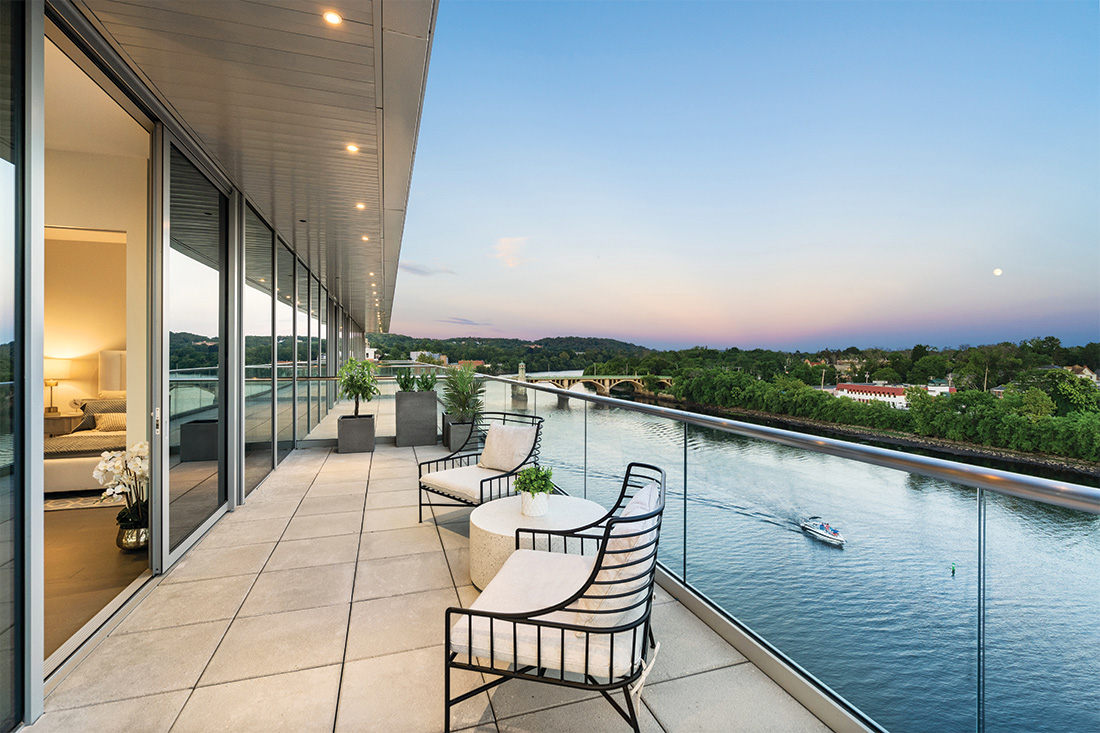Twenty years ago, in an effort to invigorate downtown metropolitan areas, like Boston’s Seaport District, developers began implementing what’s called a Live/Work/Play model. In robust collaboration with the public and private sector, they built urban neighborhoods with stylish loft living, mixed-use workspaces, restaurants, retail shops, hotels, health clubs, and outdoor spaces for recreation, entertainment, and wellness. The concept offered an attractive way to blend the conveniences of a city with the comforts of home.
Now, developers are bringing this same Live/Work/Play template to the suburbs in a movement called “hipsturbia,” as noted in Emerging Trends in Real Estate 2020, from the Urban Land Institute and Price Waterhouse and Coopers & Lybrand. It’s a brilliant concept appealing to millennials, young professionals and empty-nesters, who want an affordable and convenient alternative to big-city living, particularly during this time of COVID-19.
Take Tuscan Village in Salem, New Hampshire, for example. Joe Faro, founder and CEO of Tuscan Realty Holdings LLC, Tuscan Brands Hospitality, and The Artisan Chef Manufacturing Company, is masterminding this multi-functional destination, targeted for completion in October 2022.
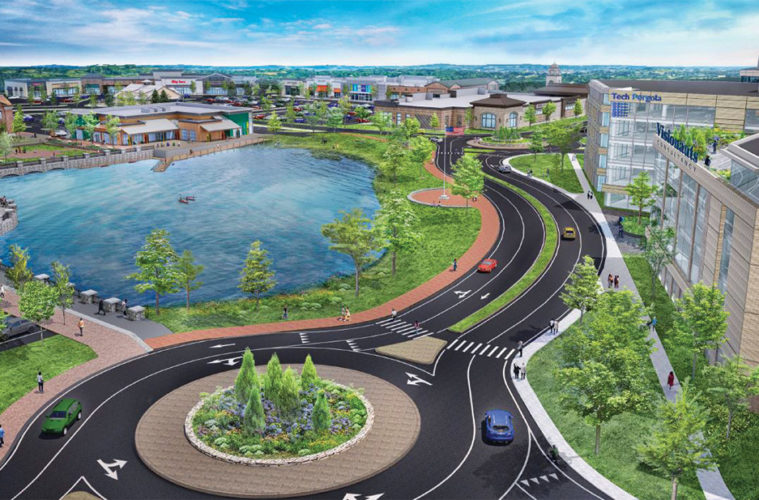
“My original vision for Tuscan Village was a mixed-use concept with maybe a hotel and some apartments on the established Tuscan Kitchen and Tuscan Market site, which is ten acres on Main Street in Salem, New Hampshire,” says Faro. After a proposed casino project on the adjacent Rockingham Park racetrack site fell through, community leaders encouraged Faro to expand his vision to the 170-acre site, then gave him the green light to do so.
In addition to lush gardens, a six-acre lake and beautiful stonework, Tuscan Village will have over 1,200 residential units, two hotels, and 1 million square feet of office space. Two medical facilities, including Mass General Brigham, will also grace the site, along with shops like Williams Sonoma, and multiple eateries, including Faro’s own Tuscan Kitchen and Tuscan Market. What’s more, the entire complex lies only 30 minutes by car to downtown Boston and Concord, New Hampshire.
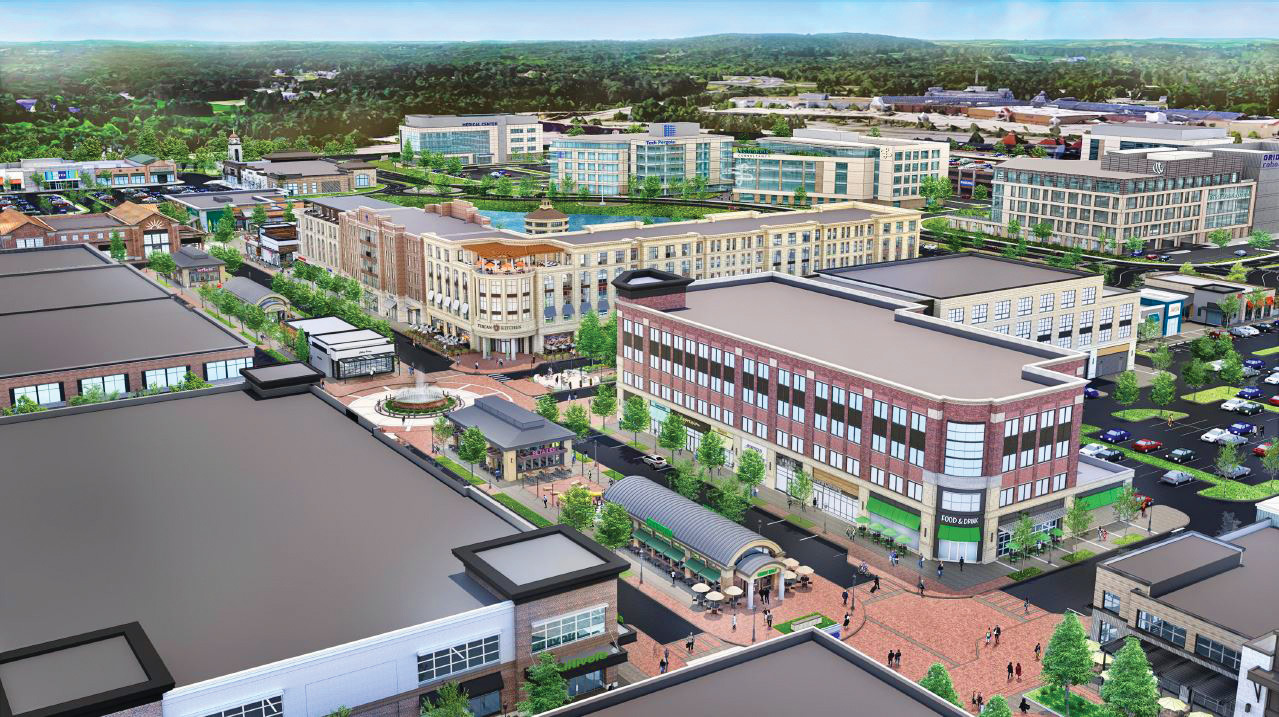
“What’s amazing about Tuscan Village is that it was kind of predesigned for COVID-19,” says Faro, who made his first fortune selling his homemade pasta and pasta sauce company to Nestlé. “We have a 22,000-square-foot outdoor lawn set up for outdoor weddings and social gatherings, we have open-air shopping and all the restaurants have roof decks. What’s more, we are already doing things, like touchless elevators, so we’re very well situated for the post-COVID new normal.”
Ironically, so are Faro’s two newest restaurants, including Newburyport’s Tuscan Sea Grill & Bar, whose rear portion opens up to a 2,000-square-foot deck overlooking Newburyport Harbor Marina. Toscana Italian Chophouse & Wine Bar in Portsmouth, New Hampshire, will offer patrons an expansive back patio when it opens this October. “I see Tuscan Brands coming out of this pandemic stronger than it was before,” says Faro, “which is a tremendous testament to the amazing men and women who make up the Tuscan team.”
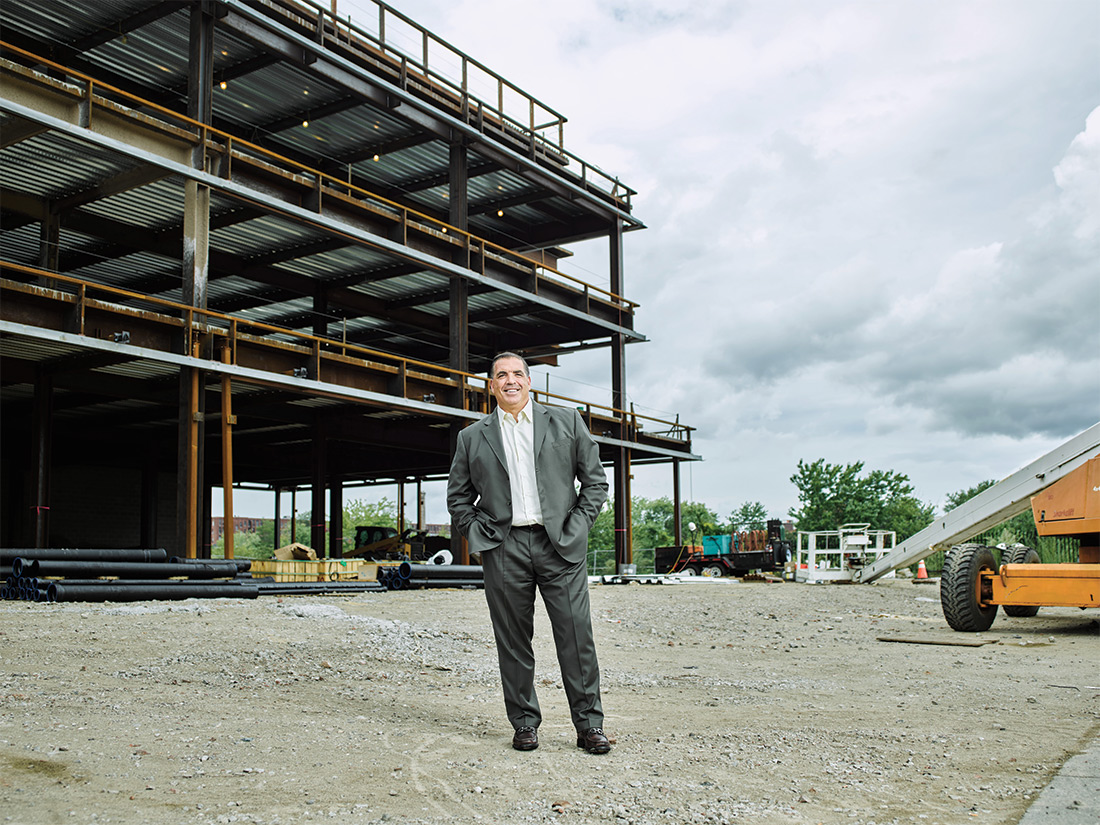
Another developer who has been improving and enlivening public spaces through his multipurpose real estate projects is Chelmsford native Sal Lupoli, CEO of Lupoli Companies. Lupoli, who launched his career with a family-run pizza business, earned early recognition for Riverwalk in Lawrence, a Live/Work/Play development located on a 40-acre abandoned mill complex. Lupoli now has several projects in the works, including The Heights Haverhill, set to open this October.
“The mayor of Haverhill was trying to get our company to go to Haverhill, based on seeing what we did in Lawrence,” says Lupoli. “So my vision was to develop mixed-use real estate along the Merrimack River.” To distinguish his property from the area’s predominantly brick buildings, Lupoli erected a cutting-edge glass and steel structure not far from the MBTA Commuter Rail and Routes 495 and 93. On the first floor of the ten-story building will be Lupoli’s upscale coastal Italian restaurant Bosa. His Bosa Bar will serve drinks and nibbles on the building’s rooftop with a pandemic-appropriate open-air deck.
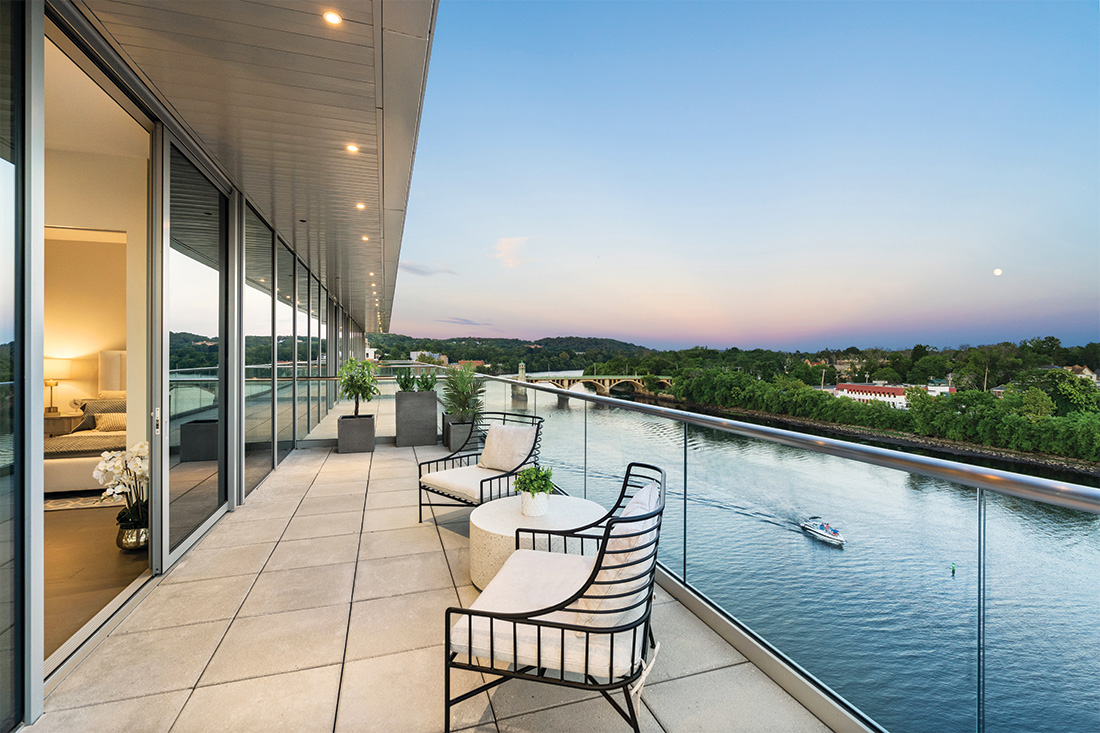
In between are the 42 posh, one- and-two-bedroom apartments, each with soaring ceilings, hardwood floors, and modern living spaces. Commercial tenants occupy the second floor, including Northern Essex Community College’s culinary school and the Lupoli Family Institute for the Culinary Arts, which the Lupoli company helped fund so the public could take cooking classes. The Lupoli company also paid to complete the wooden boardwalk running adjacent to the building along the Merrimack River, since the city lacked funding.
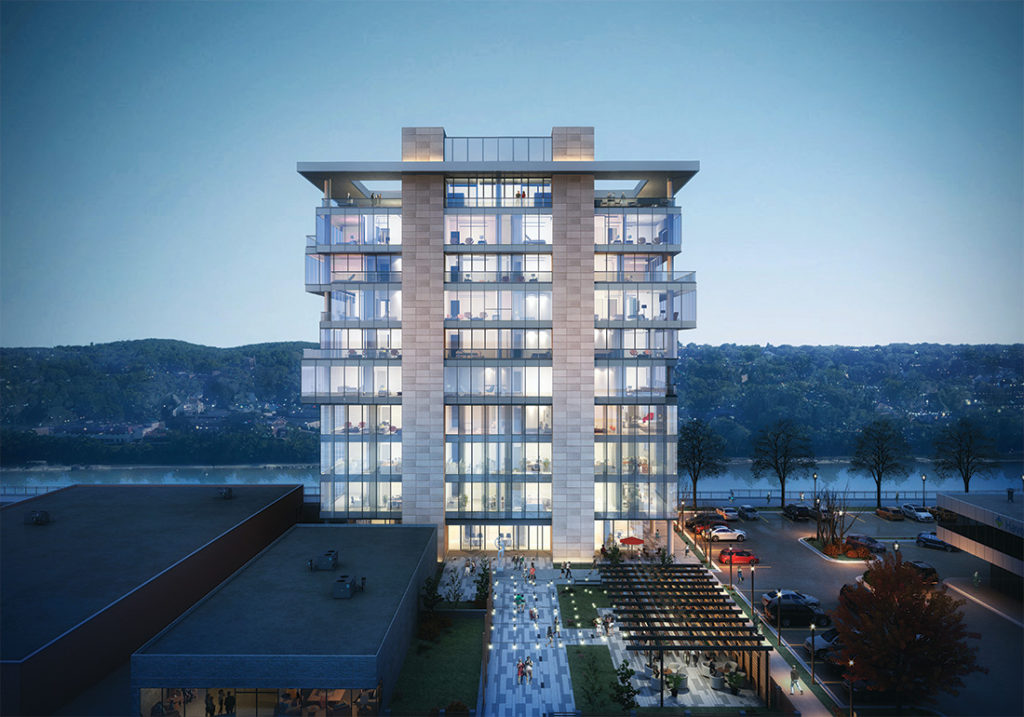
Another Lupoli venture is The Dascomb Road Project in Andover slated for completion in spring 2021. “It’s a sixteen-acre parcel, which will have retail, a fitness center, grocery store and restaurant, but no housing,” says Lupoli, adding that instead, the remaining 400,000-square-foot space is for pharmaceutical production. “We are twenty-one miles outside of Kendall Square [in Cambridge] and perfect for manufacturers who, because of COVID-19, don’t want to be in Boston.”
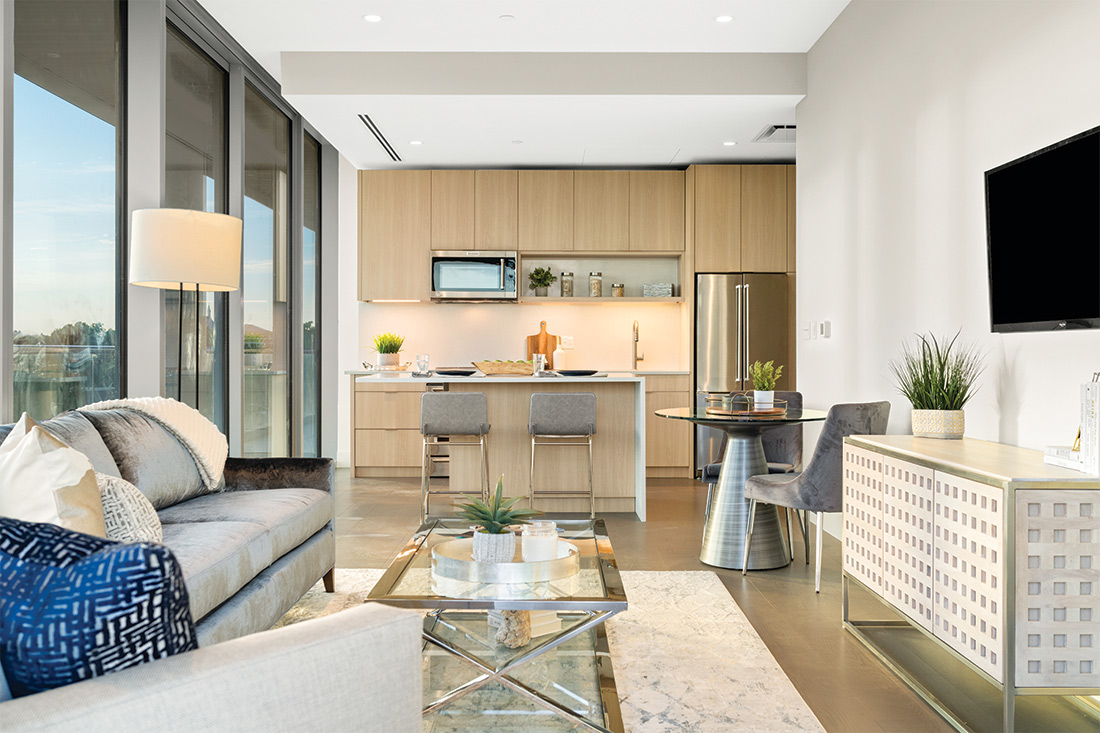
In deference to the pandemic, building plans now include installing a mile-plus track around the facility and outdoor exercise equipment. Because of the virus, Lupoli has adjusted other property plans, including the layout of Andover’s Madison on Main, a 29-room luxury residential building set to open in summer 2021. Every one-bedroom apartment has been expanded to now include a den/office so owners can work from home.
“Success in our organization will never be defined by the number of zeros after one,” says Lupoli. “It is defined by the positive impact we make on the lives of those people in our organization and the lives of those people in the communities and surrounding areas we go into.”
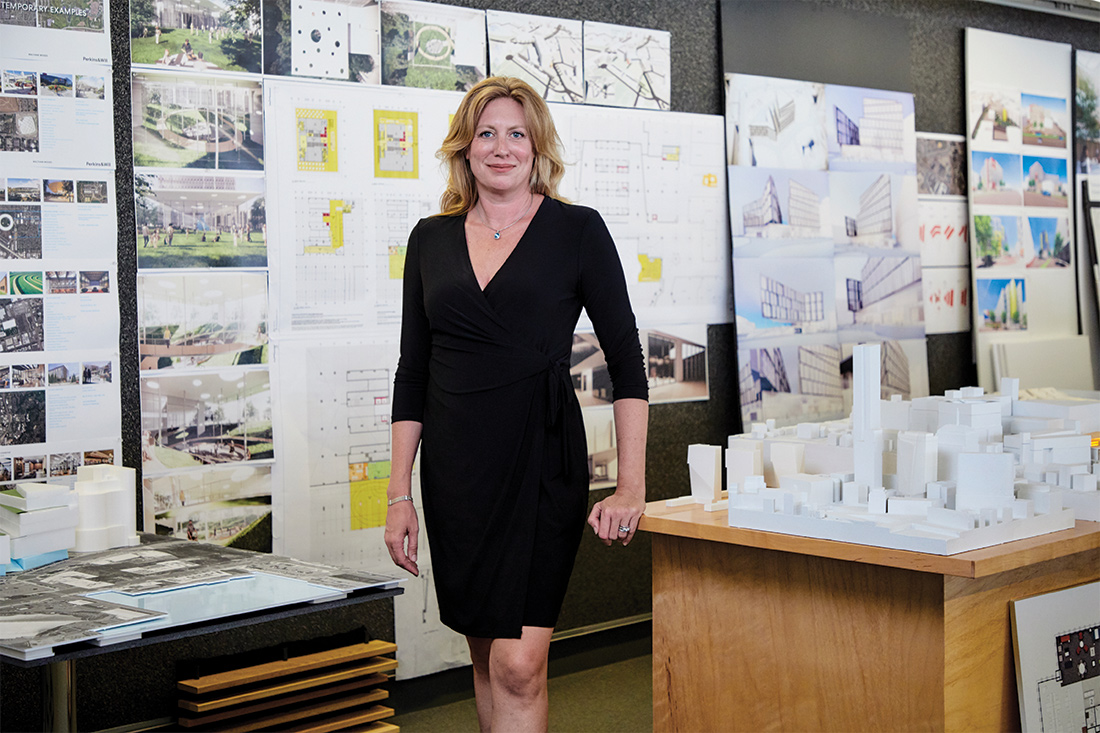
For most of her development career, Sarah Barnat, president of Barnat Development LLC, has worked on large-scale real estate projects in Boston. But in July 2016, she won the bid to construct Holmes Beverly, a six-story, 67-unit multifunction housing development on Rantoul Street in Beverly.
“Our project came on the heels of the total revitalization of Route 1-A and some surrounding real estate, and the city was eager to continue Rantoul Street’s renaissance,” says Barnat. “Specifically, they wanted a mixed-use development around the 500-car parking garage that the MBTA had built.” Since Barnat had a long working relationship with the MBTA from previous projects, including when she served as executive director of the Urban Land Institute Boston/New England, she was a shoo-in to develop Holmes Beverly.
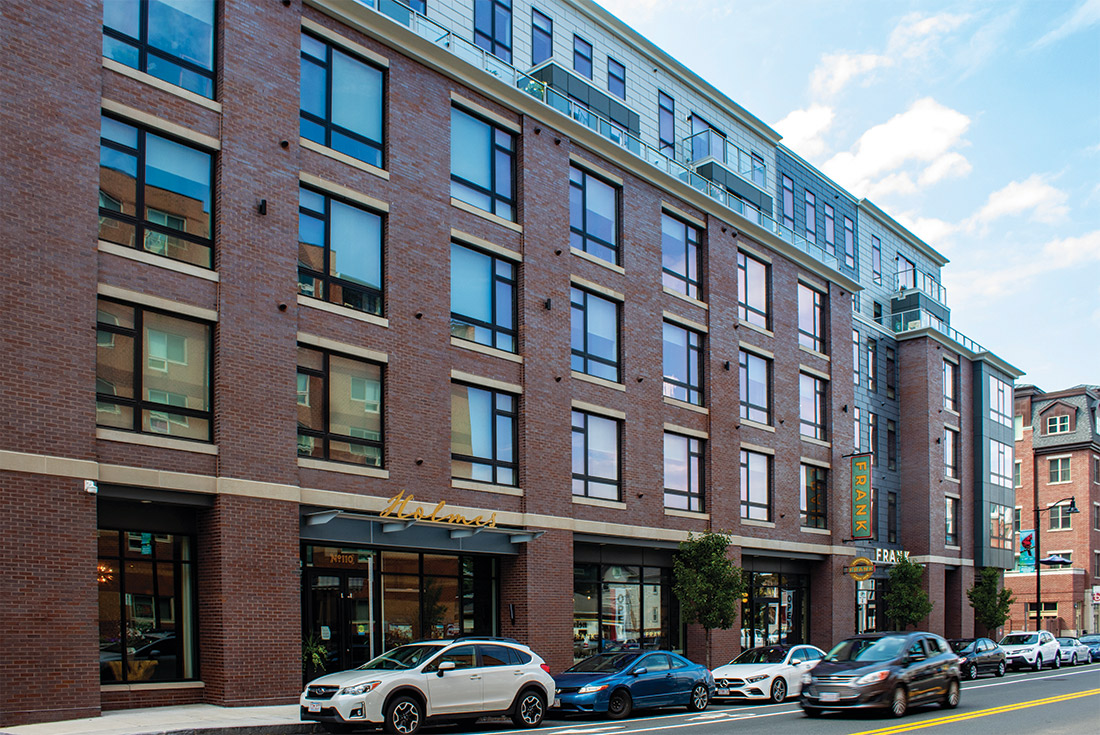
“We wanted to create a building in the suburbs that was as high-quality and efficient as the kind of building you’d find in downtown Boston,” says Barnat. To wit, all studio, one-, and two-bedroom units have lofty ceilings, high-quality appliances, granite counters, and gas-fueled kitchens with individual heat and hot water systems. Some apartments have balconies and soaking tubs, and all have air filtration systems that are EPA indoor air quality plus rated, a particularly important feature given the new novel coronavirus.
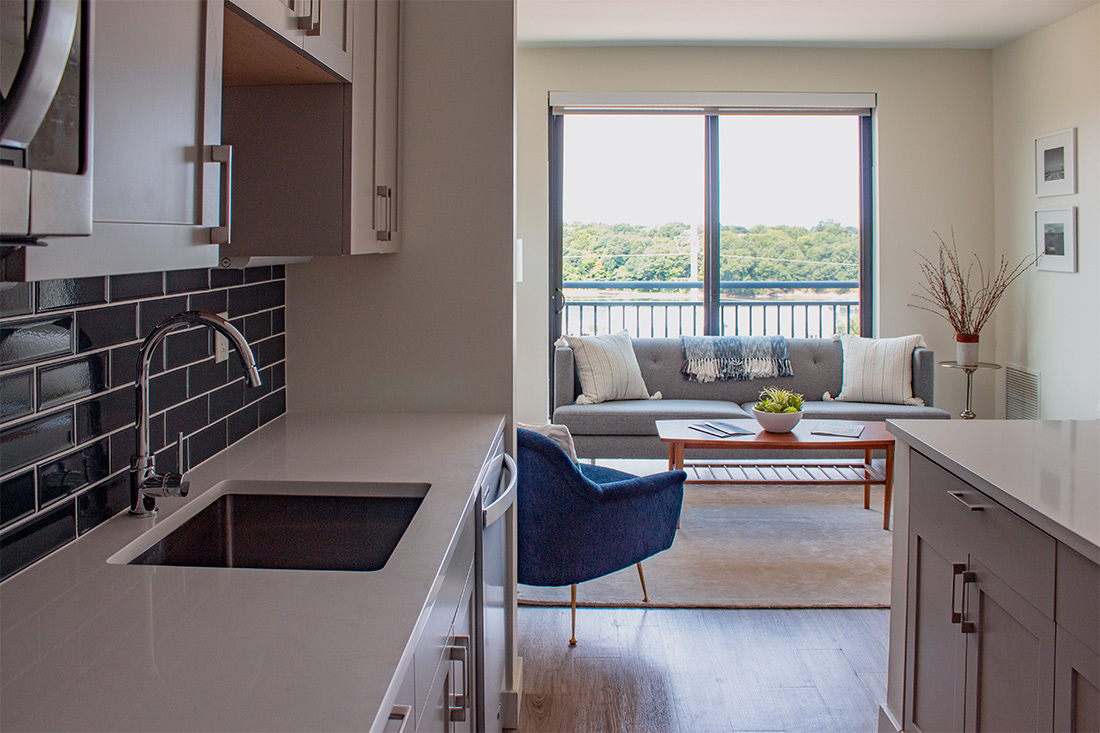
Sixteen of the units are “workforce housing” for tenants making 80 to 110 percent of the area’s median income. “It allows us to have a diverse socio-economic mix in our development with everyone paying market rent and enjoying a boutique building,” says Barnat.
Anchoring the complex’s ground floor is Frank, a market and café that North Shore resident, Frank McClelland, opened last November. FRANK has remained open during the pandemic to provide residents and the community with staples, prepared foods, take-out, coffee, beer and wine. The café even has an outdoor patio for socially-distanced dining.
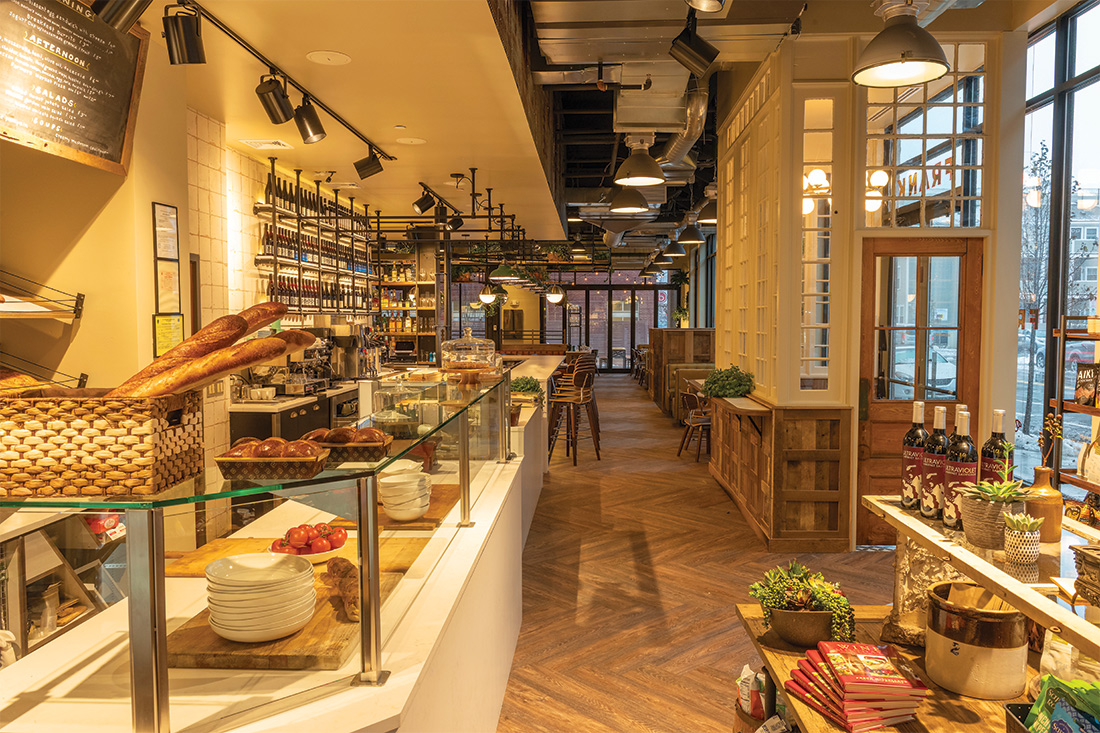
The virus has caused some residents to upgrade from studios to one bedrooms at Holmes Beverly. “I’m noticing that many people want to live in an urban environment," says Barnat. "So, I am happy that Holmes Beverly can offer that sort of product—for people who are returning to the North Shore or those who want to experience it for the first time.”
barnatdevelopment.com; lupolicompanies.com; villastuscanvillage.com
